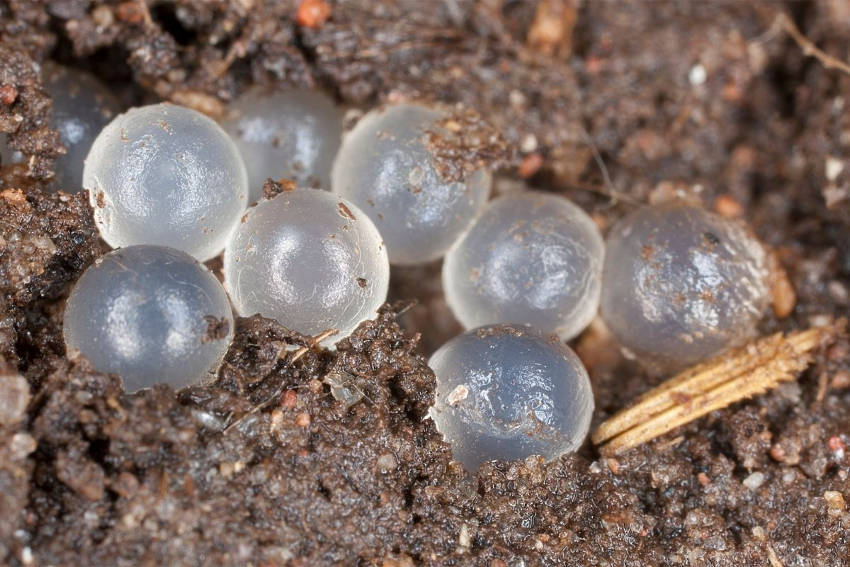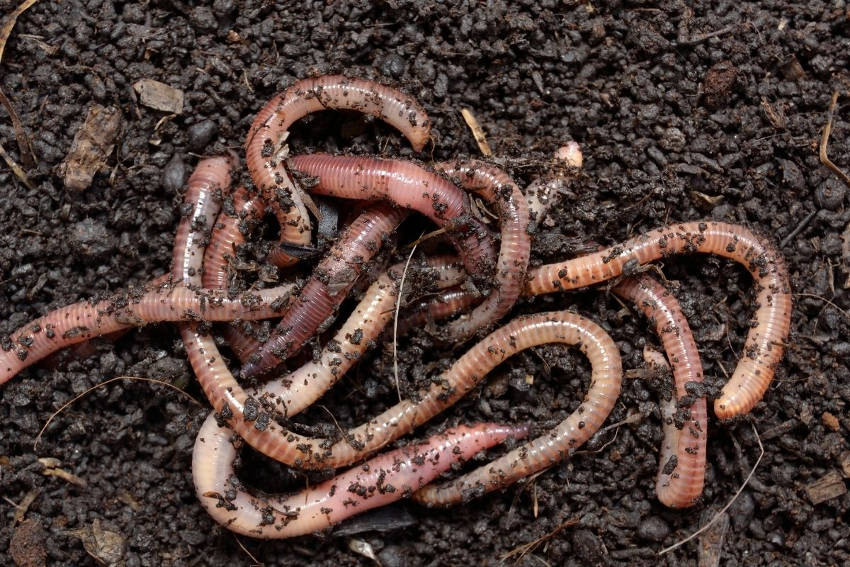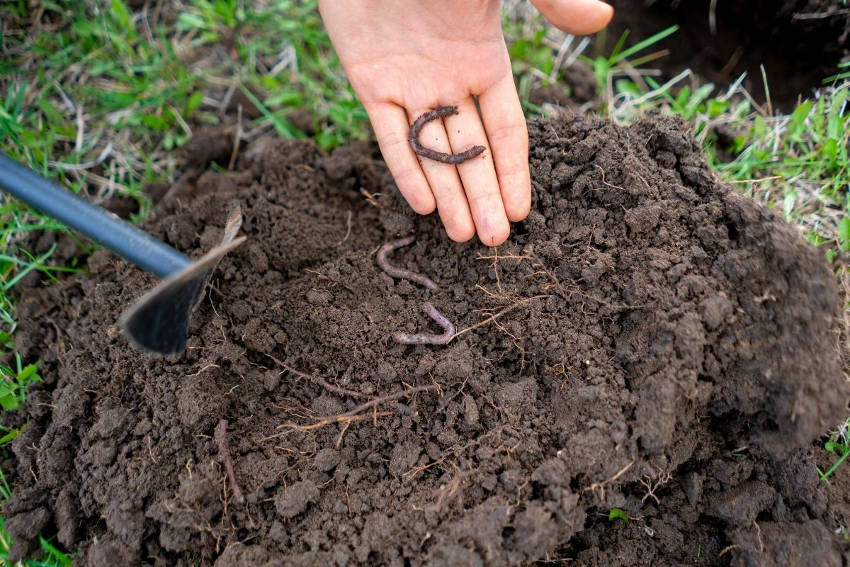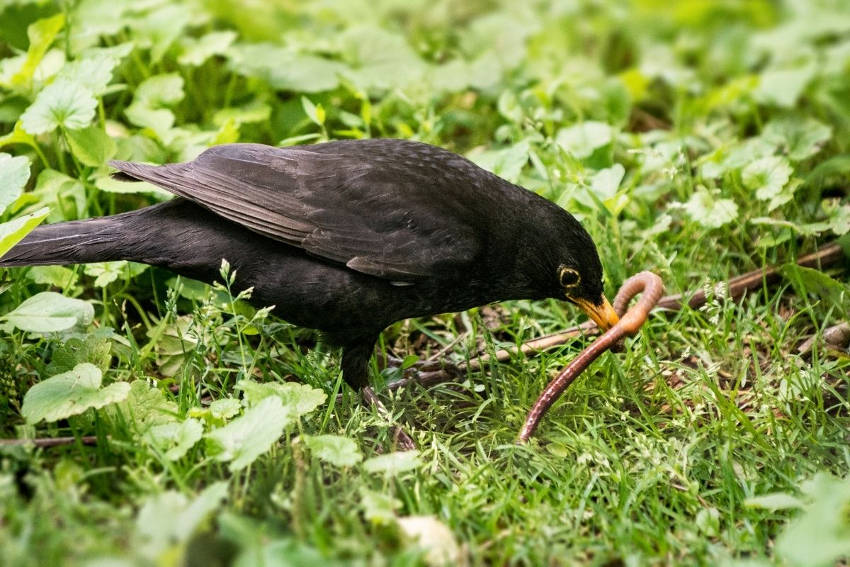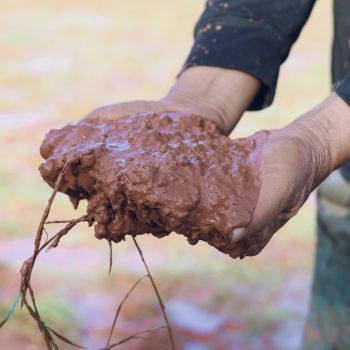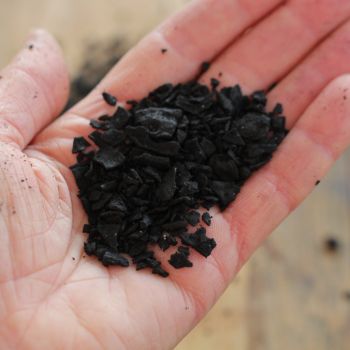So many parts of gardening success rely on healthy soil, packed with microbes and creatures that create a balanced, living ecosystem. One of the most important parts of a living soil is the humble earthworm - so important, in fact, that the density of the earthworm population is often used as a direct measure of a soil's health.
Here's what you need to know about these essential garden helpers, the benefits they bring, and how to encourage more of them into your garden.
What Are Earthworms?
Everyone knows what a worm is, but there are many different variations of these wriggly invertebrates. Earthworms are a particular type of worm that lives in the soil, tunnelling deep beneath the surface and consuming organic matter through their segmented tube-within-a-tube bodies. It's this tunnelling behaviour that's responsible for many of the earthworm's most valuable benefits in the garden.
Earthworms begin their life as fertilised eggs wrapped in a protective cocoon, left in the soil by the parent. When conditions are right, each cocoon will hatch one to five immature worms, which at this stage are small, white and translucent. Over the next six weeks or so they'll grow to maturity, eventually reaching sizes of up to 30cm, after which they can start to reproduce and continue working on the soil for several years. This life cycle means that given the right encouragement, it's easy for a worm population to grow quickly.
Are Earthworms and Compost Worms the Same?
It's important to note that the earthworm is a different beast than the red worms used in composting and worm farms. Compost worms are much smaller, usually only 6cm or so in length, and tend to live and feed on the surface. This makes them great for recycling large amounts of organic matter, but they don't provide the other benefits of earthworms which burrow much deeper into the soil.
Why Are Worms So Good for Your Soil?
Worms are one of the most important ways in which organic matter is recycled in the soil. As they feed, they excrete soil-like waste that's packed with nutrients in a form that can be used by microorganisms and plants.
But this recycling is only one of the benefits they bring. Earthworms are enthusiastic tunnellers, capable of burrowing down as deep as two metres in the right soil. As they dig, they improve the soil texture, breaking up larger clumps and improving aeration. The extra air benefits many smaller creatures, from microbes to insects.
The improved soil texture improves drainage after heavy rain, while also boosting water retention for consistently moist soil. It's thought that earthworms can reduce water run-off by up to 90%, reducing flooding risks as well as protecting against erosion.
The worms' tunnelling also helps to distribute nutrients around the soil rather than leaving decaying matter on the surface, helping to nourish deeper-rooted plants.
And as a last unwitting benefit, earthworms also provide an important food source for birds, small mammals and reptiles, helping to build overall biodiversity.
Ways to Attract Worms to Your Garden
Given all these benefits, attracting more worms is an excellent way to improve your soil health and with it your gardening efforts. Here are the five main ways to do this.
1. Manage Soil Moisture
Earthworms get through an amazing amount of moisture, losing up to a fifth of their body weight each day if it's not replenished. Keeping your soil moist is vital for worms’ health, as they will die if the soil dries out. On the flip side, waterlogged soil can suffocate the worms, so drainage is also important. Just like most plants, a reasonable balance between moisture and waterlogged soil will give worms the environment they need.
2. Increase Organic Matter
Adding plenty of organic matter to the soil provides food to sustain the worm population. In return they'll distribute the nutrients around your beds. Compost, mulch and leaf litter are all good sources of organic matter. Growing a green manure on bare patches is also helpful, ensuring that there's a consistent supply of food available.
3. Maintain Soil pH
Worms dislike acidic soil as it tends to be low in calcium, a mineral that they rely on. Aim to keep your soil in the range of 4.5 to 6.7 pH, and you can expect worm numbers to increase significantly.
4. Minimise Chemical Use
Many chemical fertilisers and pesticides are harmful to earthworms, as well as often increasing soil acidity as a side effect. Aim to keep all chemical use to a minimum, even for treatments as seemingly harmless as copper sprays for fungal control.
5. Don't Compact or Disturb the Soil
Lastly, worms are great at breaking up and aerating soil, but they'll struggle to burrow through heavily compacted earth. Try to avoid walking over or using heavy machinery on the soil, particularly after heavy rain. At the opposite extreme, heavy use of cultivators or deep digging can also reduce worm numbers through simple physical damage, so aim to keep any soil disturbance close to the surface when it's necessary.
Keep all these tips in mind as you go about your daily gardening, and you can expect earthworm numbers to quickly increase, and all the benefits they bring to the garden along with them.
